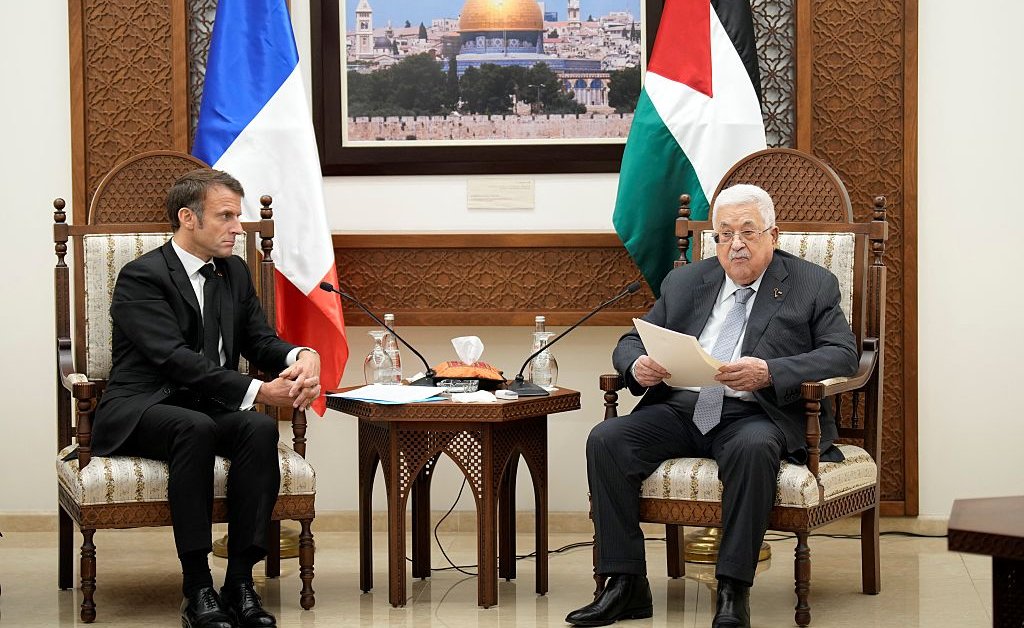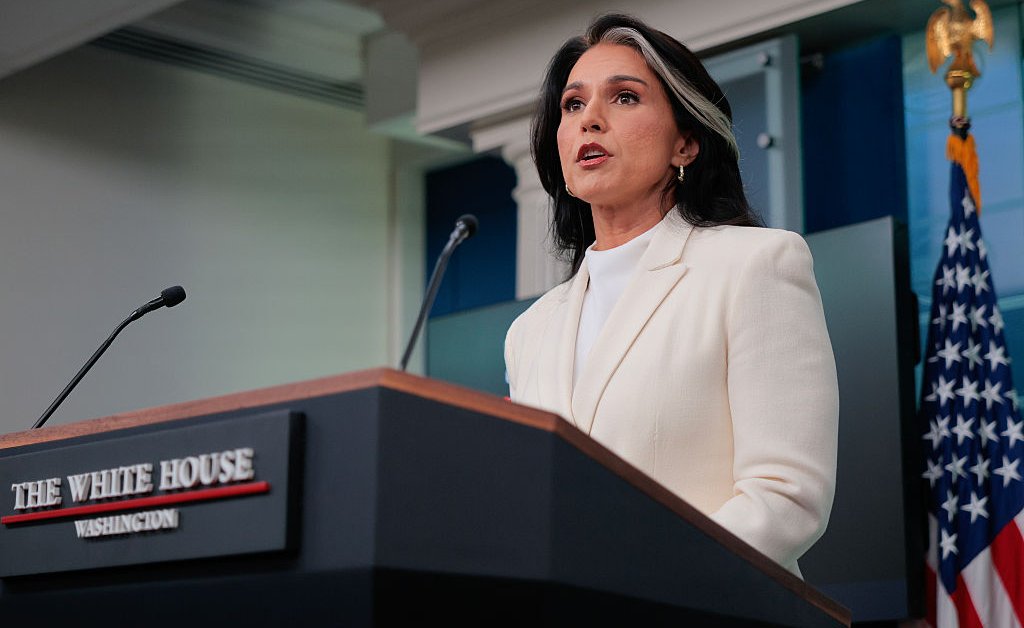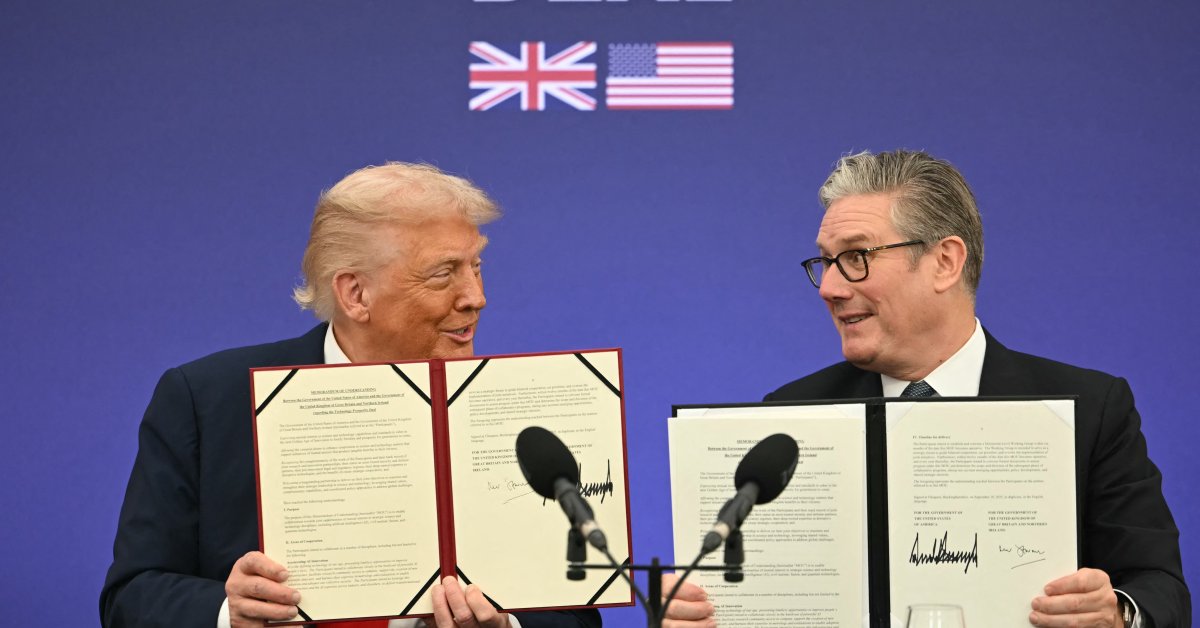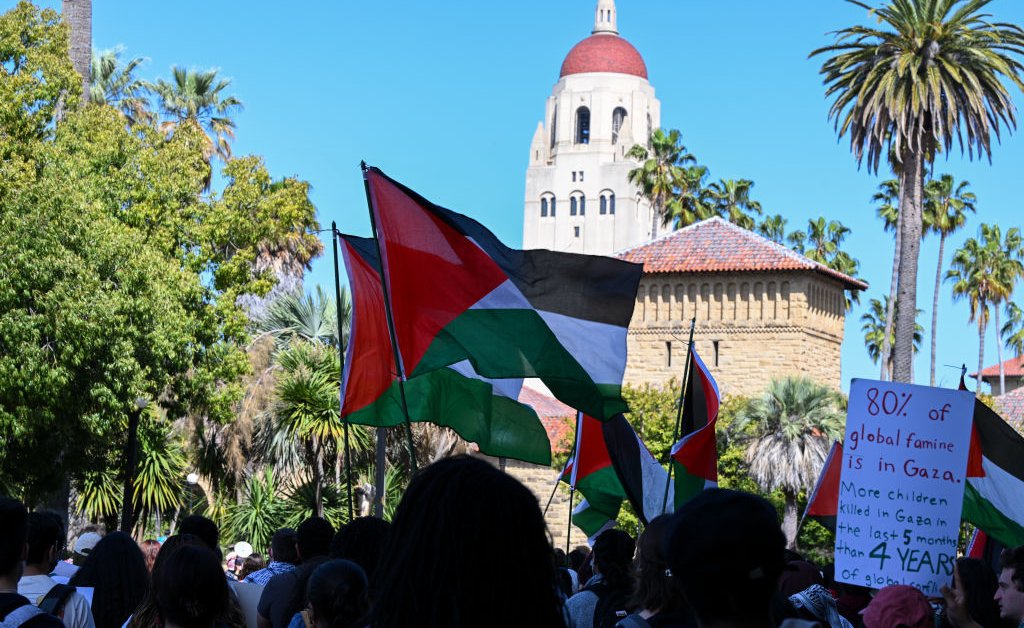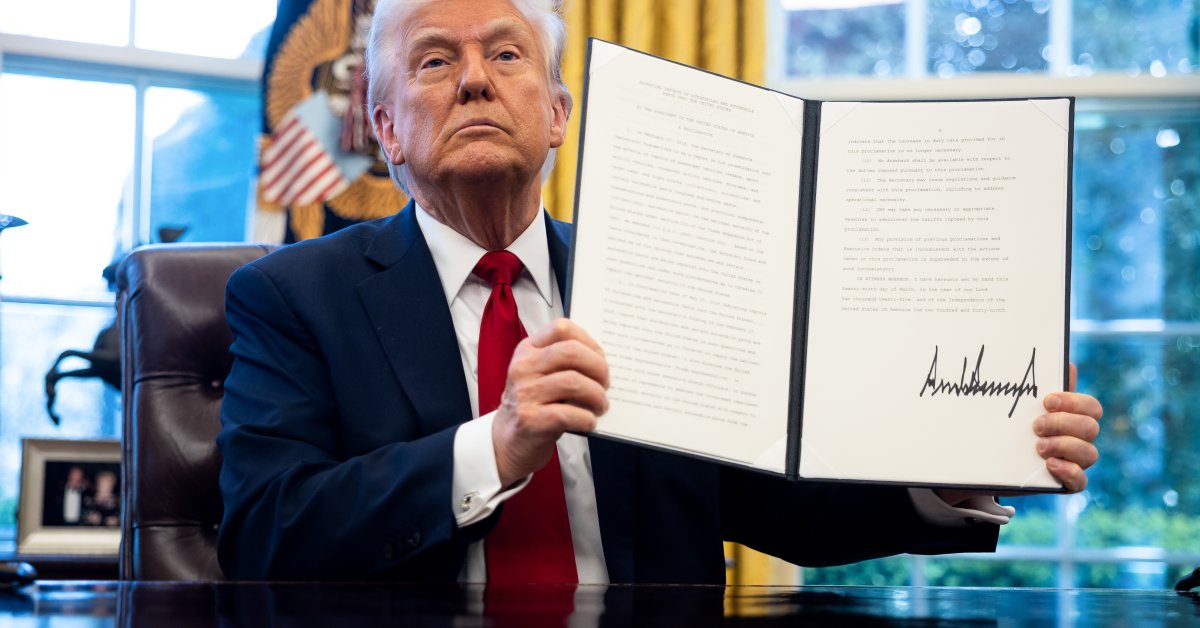Israeli and U.S. leaders have denounced President Emmanuel Macron’s announcement that his country will recognize Palestinian statehood, becoming the first major Western power to do so.
Israeli Prime Minister Benjamin Netanyahu “strongly condemned” the move, saying that it “rewards terror and risks creating another Iranian proxy, just as Gaza became.”
“What he says doesn’t matter,” President Donald Trump said in reaction to Macron’s decision while speaking to reporters at the White House on Friday. “He’s a very good guy. I like him, but that statement doesn’t carry weight.”
The United States “strongly rejects” Macron’s plan, Secretary of State Marco Rubio said. “This reckless decision only serves Hamas propaganda and sets back peace,” he wrote. “It is a slap in the face to the victims of October 7th.”
France will officially recognize Palestine as an independent state at a meeting of the United Nations General Assembly in September, Macron announced on Thursday.
“It is essential to build the State of Palestine, ensure its viability, and enable it, by accepting its demilitarization and fully recognizing Israel, to contribute to the security of all in the Middle East. There is no alternative,” the French President said in a post on X.
The decision could add momentum to a push for Palestinian statehood that has so far largely been driven by smaller nations. While meeting with criticism from Israel and the U.S., Macron’s announcement was celebrated by other countries that have already made similar moves, as well as by Hamas and Palestinian leadership.
Hamas called it “a positive step in the right direction to achieve justice for our oppressed Palestinian people and support their legitimate right to self-determination.”
Palestinian Liberation Organization Vice President Hussein Al Sheikh thanked Macron, saying that his announcement “reflects France’s commitment to international law and its support for the Palestinian people’s rights to self-determination.”
What does Macron’s decision mean for a Palestinian state?
France will be the biggest Western power and first member of the group of economic superpowers known as the Group of 7 (G7) to recognize Palestine as an independent state.
Nearly 150 out of the 190 U.N. member states now do so, including several other European countries—Spain, Ireland and Norway—that have formally recognized Palestine since the start of the war between Israel and Hamas in October 2023.
France has signaled it is hopeful other major powers will follow suit. “I’ve had other colleagues on the phone and I’m sure that we won’t be the only ones recognizing Palestine in September,” a senior official with the French presidency told CNN.
Macron has not specified what territory France would recognize as being part of a Palestinian state. Palestinians seek a state including parts of the West Bank, East Jerusalem, and Gaza, all of which are considered occupied territories by the United Nations.
The French President did say that he wishes to ensure the demilitarization of Hamas and rebuild Gaza.
Macron will hold calls with British Prime Minister Sir Keir Starmer and German Chancellor Friedrich Merz on Friday to discuss the situation in Gaza.
On Thursday, Starmer said that “statehood is the inalienable right of the Palestinian people. A cease-fire will put us on a path to the recognition of a Palestinian state and a two-state solution which guarantees peace and security for Palestinians and Israelis.”
A divided response
Macron’s announcement comes amid international outcry over what humanitarian organizations warn is a deepening humanitarian crisis in Gaza, as the enclave’s health ministry reports that more than 100 people have died of hunger since the war began.
The starkly divergent responses to France’s decision from world leaders reflect deeper divisions over the conflict.
“The audacity of the French president to create, with mere words, a permanent order in our land is absurd and unserious,” Israel’s Foreign Minister Gideon Saar said on Thursday.
He added that “a Palestinian state would be a Hamas state,” in a statement on social media.
Israeli far right politician and finance minister Bezalel Smotrich said that Macron’s recognition of Palestine provides a reason to “finally implement Israeli sovereignty” over the West Bank.
“This will be our legitimate Zionist response to the unilateral pressures and coercive maneuvers of Macron and his allies,” he continued on X.
On Wednesday, the Israeli Parliament voted in favor of a non-binding motion for Israel to annex the West Bank.
Smotrich, as well as fellow far-right politician Itamar Ben Gvir, were both recently sanctioned by the U.K., Canada, New Zealand, Australia and Norway for inciting “extremist violence and serious abuses of Palestinian human rights,” particularly in the West Bank.
Other countries that have recognized Palestine met the announcement with a very different tone.
“I warmly welcome President Macron’s intervention, this is very significant, the first G7 nation to recognize the state of Palestine,” Irish Taoiseach (Prime Minister) Micheál Martin told reporters on Friday.
He added that it was significant for peace efforts to “create a future landscape for a two-state solution.”
Prime Minister Pedro Sanchez has “celebrated” France’s decision to recognize Palestine. “Together, we must protect what Netanyahu is trying to destroy. The two-state solution is the only solution.”
China has offered a more nuanced response. When asked on Friday about Macron’s decision to recognize Palestine, China’s Foreign Ministry Spokesperson Guo Jiakun said: “The Palestinian question is at the heart of the Middle East situation. The only viable way to resolve it lies in the two-State solution,” adding that China will continue working towards the “just and lasting settlement of the Palestinian question.”

